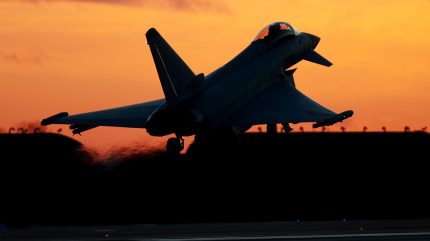
Airbus has revealed the completion of ‘first flight’ for German Aerospace Center’s (DLR) modified Airbus A320 advanced technology research aircraft (ATRA) for the E-Scan radar project.
This aircraft, which now features the nose of a Eurofighter jet, has been transformed into a flying ‘test bed’ to test the new E-Scan radar.
Airbus E-Scan radar project manager Thomas Hirsch said: “We are operating the aircraft in close collaboration with the DLR and the German Armed Forces to test a new radar for the Eurofighter and bring it to maturity.”
To accommodate the Eurofighter’s nose and the active electronically scanned array (AESA-MK1 radar), Airbus Defence and Space and Commercial Aircraft teams have redesigned the aircraft’s front section and reinforced its airframe.
All modifications adhere to the stringent standards of Airbus Commercial Aircraft in Toulouse, the type-certification holder, Airbus said.
With the successful completion of its maiden flight, the A320 ATRA is poised to begin extensive radar testing this year.

US Tariffs are shifting - will you react or anticipate?
Don’t let policy changes catch you off guard. Stay proactive with real-time data and expert analysis.
By GlobalDataThe decision to utilise the A320 ATRA rather than a Eurofighter itself for these tests stems from the former’s ability to undergo a shorter clearance process and remain airborne for extended periods.
Hirsch said: “The A320 ATRA has a significantly shorter clearance process and can stay in the air longer than a Eurofighter.”
As a result, “testing time” in a real-life environment is expected to be earlier, quicker and with a longer time on the A320 aircraft.
The AESA-MK1 radar, following its development, is planned to be onboard the Spanish “Halcón I” and German “Quadriga” Eurofighters to improve their air-to-air and air-to-ground capabilities and adding electronic warfare functions.
Earlier in January 2025, Germany-based sensor solutions company Hensoldt was selected by the DLR Quantum Computing Initiative (DLR QCI) to partake in the QUA-SAR research project to advance radar remote sensing technology.
The German company will collaborate with the German Aerospace Centre’s Microwaves and Radar Institute and Tensor AI Solutions on the project.



